Procter and Gamble remains at risk of sourcing illegal palm oil
In response to a Rainforest Action Network (RAN) investigation exposing illegal palm oil development in the Leuser Ecosystem, called the Carbon Bomb Scandals, consumer goods giant Procter & Gamble (P&G) committed to work with its suppliers to restore illegal palm oil plantations in a lush rainforest region of Sumatra’s Leuser Ecosystem known as the “orangutan capital of the world.” RAN has gathered fresh evidence that this commitment is not being fulfilled, despite an increase in deforestation and burning of carbon-rich peatlands in the globally important conservation area in Indonesia.
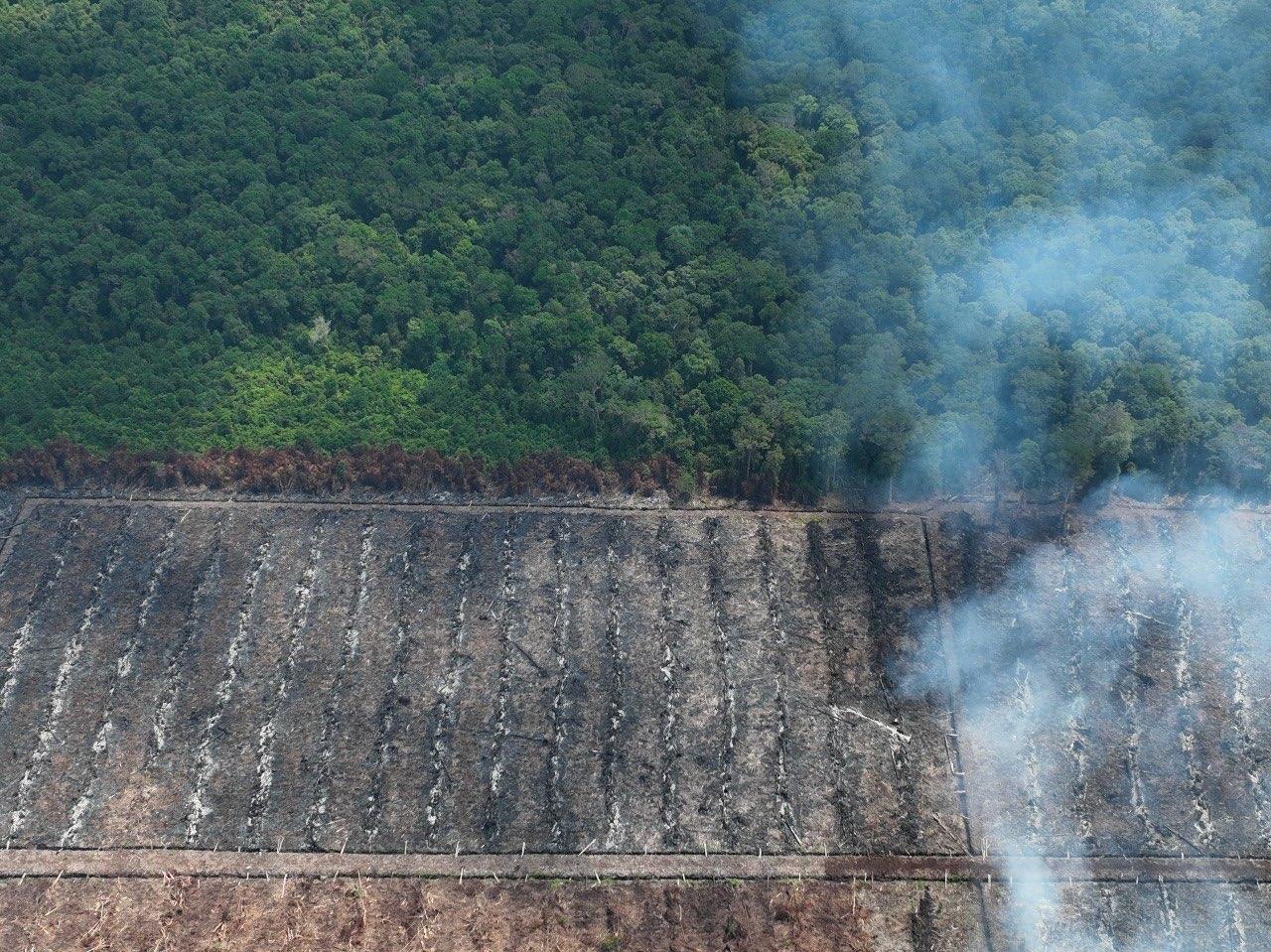
Fires burn following illegal deforestation within, and surrounding, the Rawa Singkil Wildlife Reserve, Aceh Selatan. February 2024. GPS Coordinates: 02°44′ 57.768″N 97°39’2.82″E.
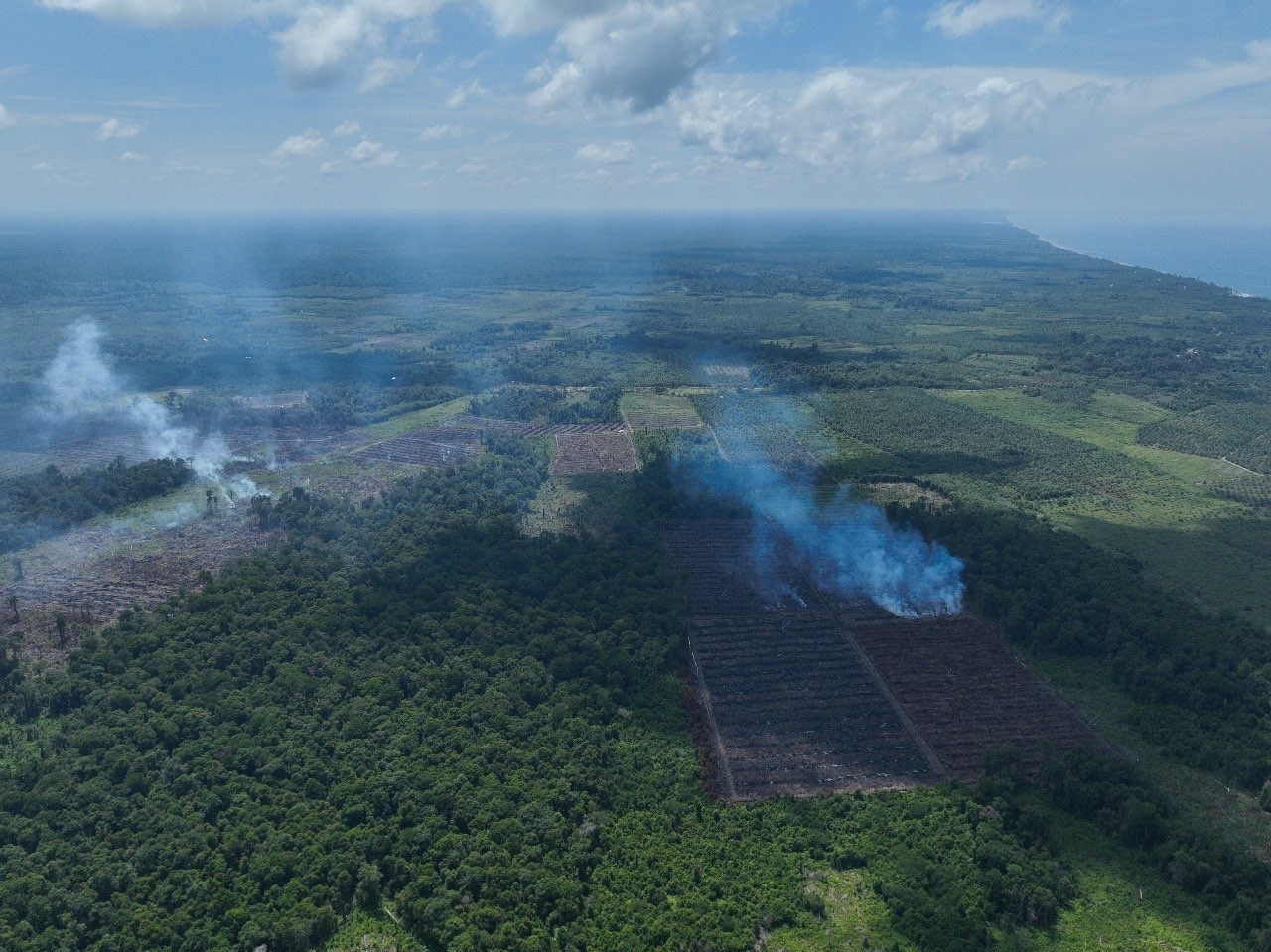
Fires burn following illegal deforestation within and surrounding the Rawa Singkil Wildlife Reserve, Aceh Selatan. February 2024. GPS Coordinates: 02°45′ 33.198″N 97°39′ 9.354″E.

New forest clearance and canal development inside the Rawa Singkil Wildlife Reserve, Aceh Selatan, Indonesia. August, 2023. Credit: Paul Hilton/Global Conservation.
P&G suppliers Wilmar, Golden Agri Resources (GAR), Musim Mas and Royal Golden Eagle group were all exposed for sourcing illegally produced palm oil from inside the nationally protected Rawa Singkil Wildlife Reserve. After validating RAN’s findings, the traders committed to work with their supplier Mr. Mahmudin to return illegally planted areas inside the Rawa Singkil Wildlife Reserve to the authorities so they could be restored.
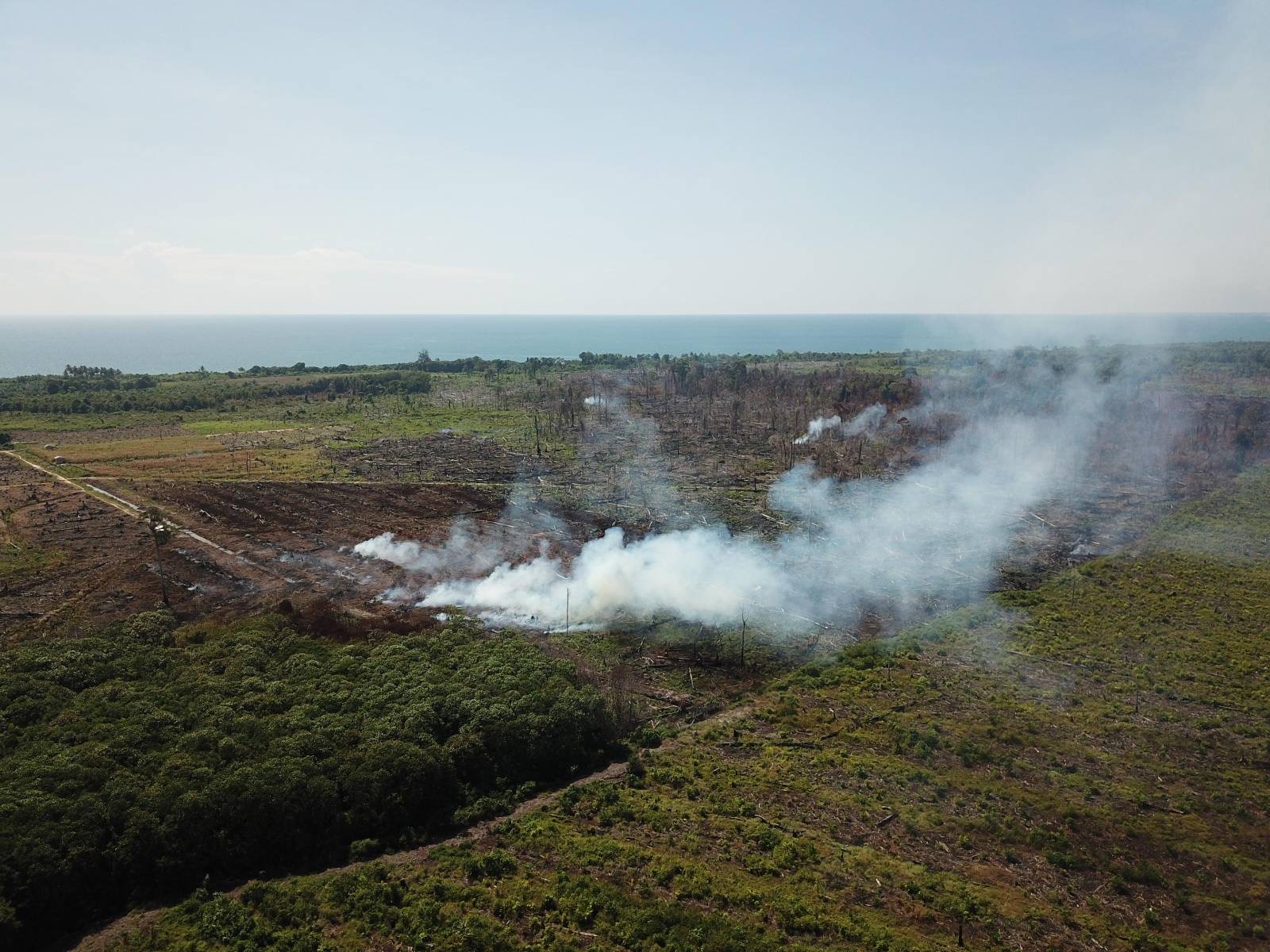
Burning of peatlands to make way for Mr. Mahmudin’s illegal palm oil plantation inside Rawa Singkil Wildlife Reserve. Palm oil grown on the illegally cleared land was later supplied by Mr. Mahmudin and a network of brokers and mills to major brands including Procter & Gamble.
Nearly a year after being exposed, P&G suppliers issued updates saying the illegal plantations will not in fact be returned by their problematic supplier, Mr. Mahmudin. It is clear that Mr. Mahmudin has backpedaled on his commitment and that he is confident he can continue to operate his illegal plantation with impunity while continuing to supply his palm oil products into the network of mills supplying the big traders and global brands like P&G.
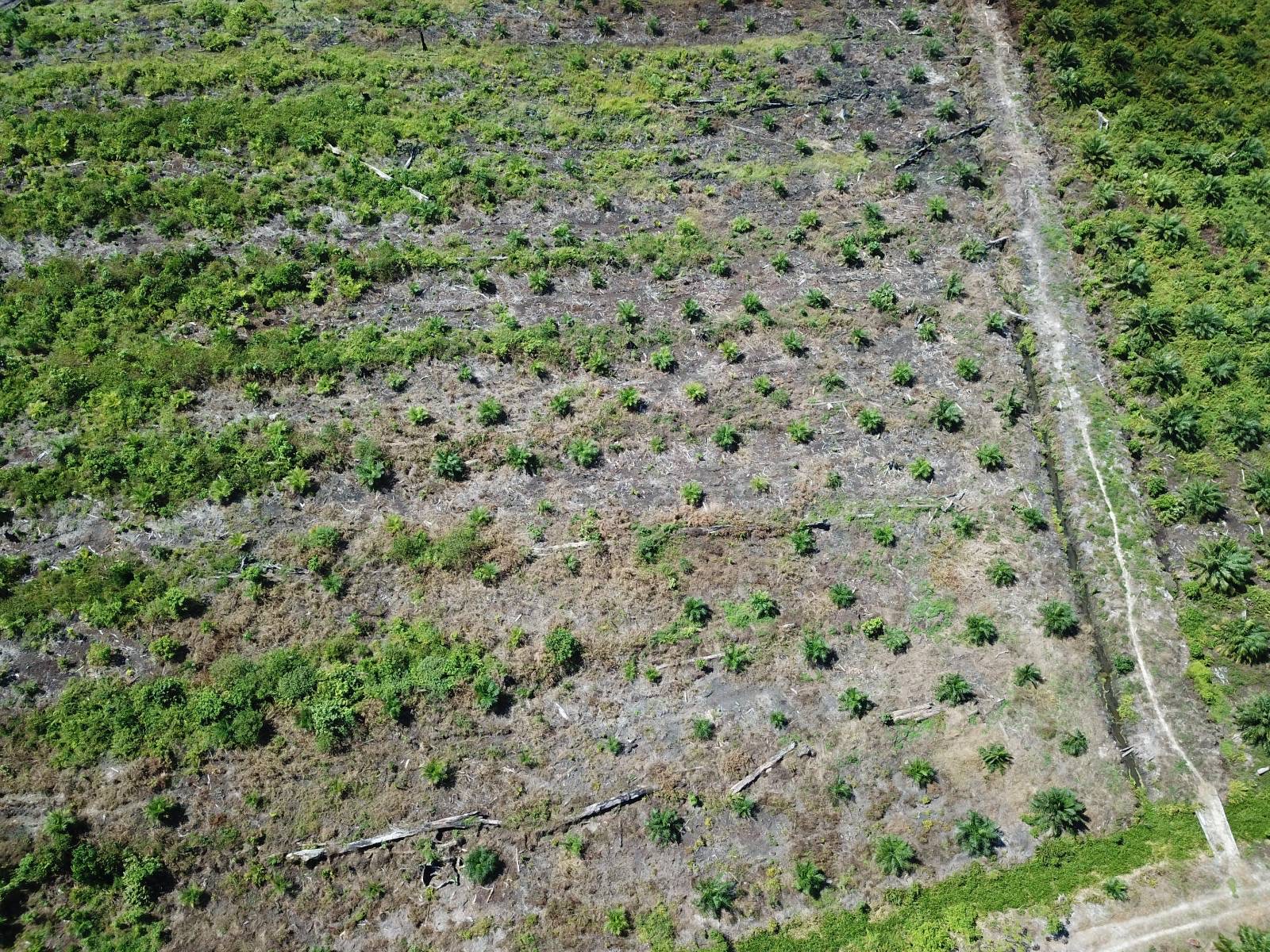
Mr. Mahmudin established an illegal palm oil plantation on deforested lands inside the Rawa Singkil Wildlife Reserve. The deforestation occurred after Procter & Gamble’s December 2015 deforestation cut-off date.
Musim Mas, GAR, Wilmar and Apical of the Royal Golden Eagle group are now saying they have excluded Mr. Mahmudin from their supply chains due to his refusal to return illegal plantations to the reserve. RAN’s investigations, as well as verification reports published by the traders, have shown that the mills and associated network of palm oil brokers supplying these traders don’t have adequate traceability or No Deforestation, No Peatland and No Exploitation (NDPE) compliance systems. This means these traders can’t truly provide any assurances that this exclusion of palm oil produced by Mr. Mahmudin will be enforced.
Musim Mas, GAR and Wilmar have categorically refused to commission independent verification of the traceability and compliance systems of the mills they continue to source from that are located near the Rawa Singkil Wildlife Reserve. Independent verification is required to assess if the systems they claim have been put in place since the publication of the Carbon Bomb Scandals are adequate and can be relied upon to ensure no sourcing of illegal palm oil grown by Mr. Mahmudin–– and other local elites––inside the reserve. In the absence of evidence collected via independent verification exercises, the mills supplying Procter & Gamble and other major brands remain at risk of sourcing illegal palm oil produced inside the nationally protected Rawa Singkil Wildlife Reserve.
P&G remains a major laggard in global efforts to end deforestation and in 2023 it placed its investors further at risk by actually announcing a weaker forest-risk commodity policy than it previously had. P&G refused to suspend Mr. Mahmudin at the time of the Carbon Bomb Scandals, citing his commitment to return illegally planted palm oil plantations to the authorities so they could be restored. P&G also failed to ban or suspend the mills that have been repeatedly exposed by RAN for accepting illegal palm oil grown inside the reserve. P&G recently announced that its supplier has ‘excluded Mr. Mahmudin from P&G’s supply chain’ and it has instructed its other suppliers to follow suit. To date, P&G has failed to work together with its suppliers and the government authorities to ensure the illegal palm oil plantation is restored to peat forests.
P&G remains at risk of sourcing illegal palm oil as its July 2023 mill list shows that it has sourced from seven mills at risk of sourcing illegal palm oil––PT. Global Sawit Semesta, PT. Bumi Daya Agrotamas, PT. Ensem Sawita Lestari, PT. Perkebunan Lembah Bakti I, PT. Perkebunan Lembah Bakti II, PT. Runding Putra Persada and PT. Delima Makmur. This is the latest case of a failure of P&G and its suppliers to deliver on their no-deforestation commitments. This failure is a particular tragedy because this undelivered commitment to complete restoration of the 11 acres of illegal plantation would have set a crucially important precedent. This is because at least 620 additional acres of illegal plantations have already been established within the boundaries of the Rawa Singkil Wildlife Reserve.
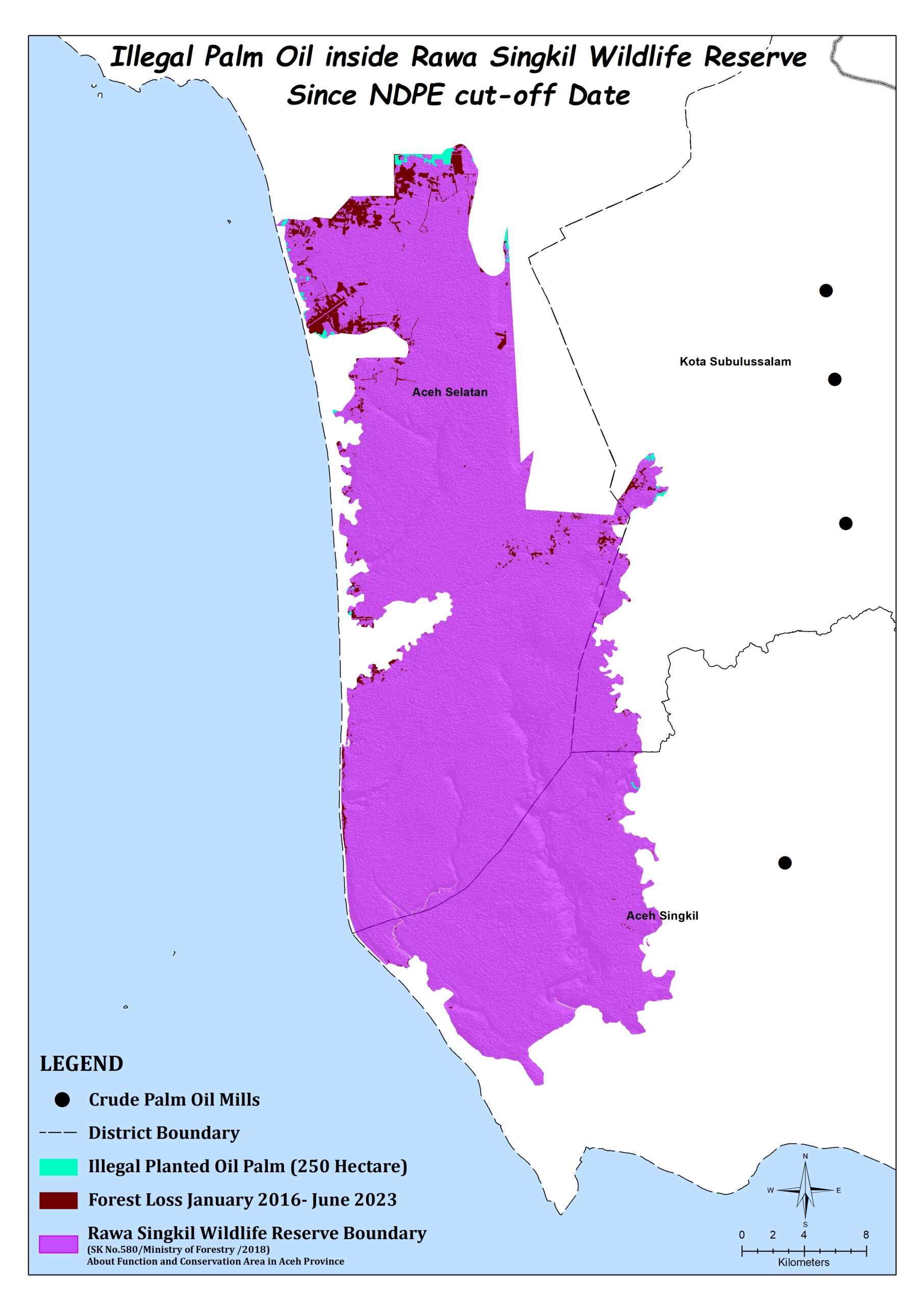
Map of illegal palm oil plantations inside Rawa Singkil Wildlife Reserve and forest loss inside the Rawa Singkil Wildlife Reserve after the deforestation cut-off date in Procter & Gamble’s palm oil sourcing policy.
The images below show the destruction that has persisted inside, and surrounding, the Rawa Singkil Wildlife Reserve despite RAN repeatedly elevating the crisis in the Orangutan Capital of the World to Procter & Gamble, Mondelēz, Nestlé, Colgate Palmolive, Unilever, PepsiCo, Mars, Kao, Nissin Foods and the Consumer Goods Forum (CGF).
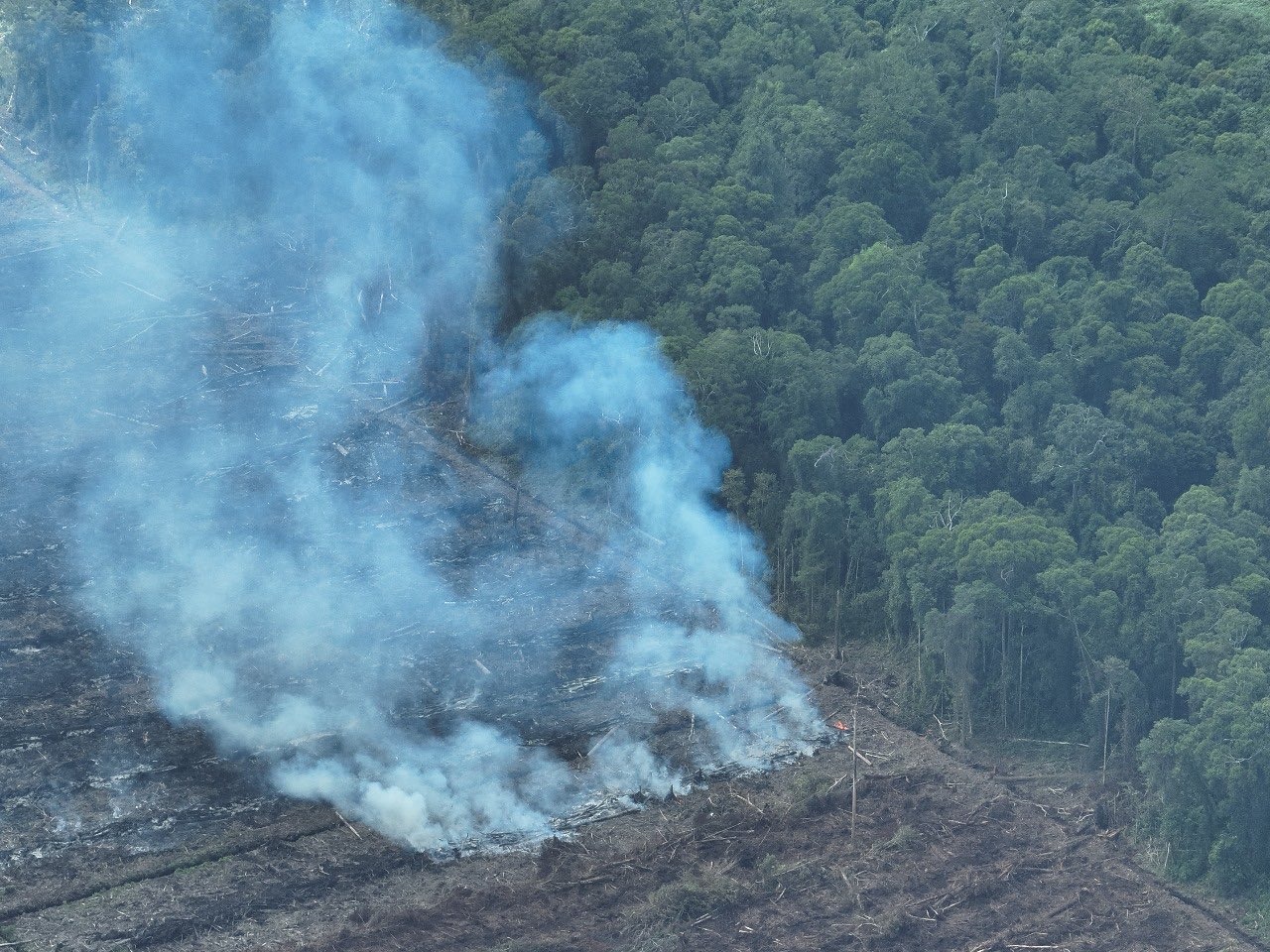
Fires burn following illegal deforestation within and surrounding the Rawa Singkil Wildlife Reserve, Aceh Selatan. February 2024. GPS Coordinates: 02°45′ 29.964″N 97°39′ 13.7944″E
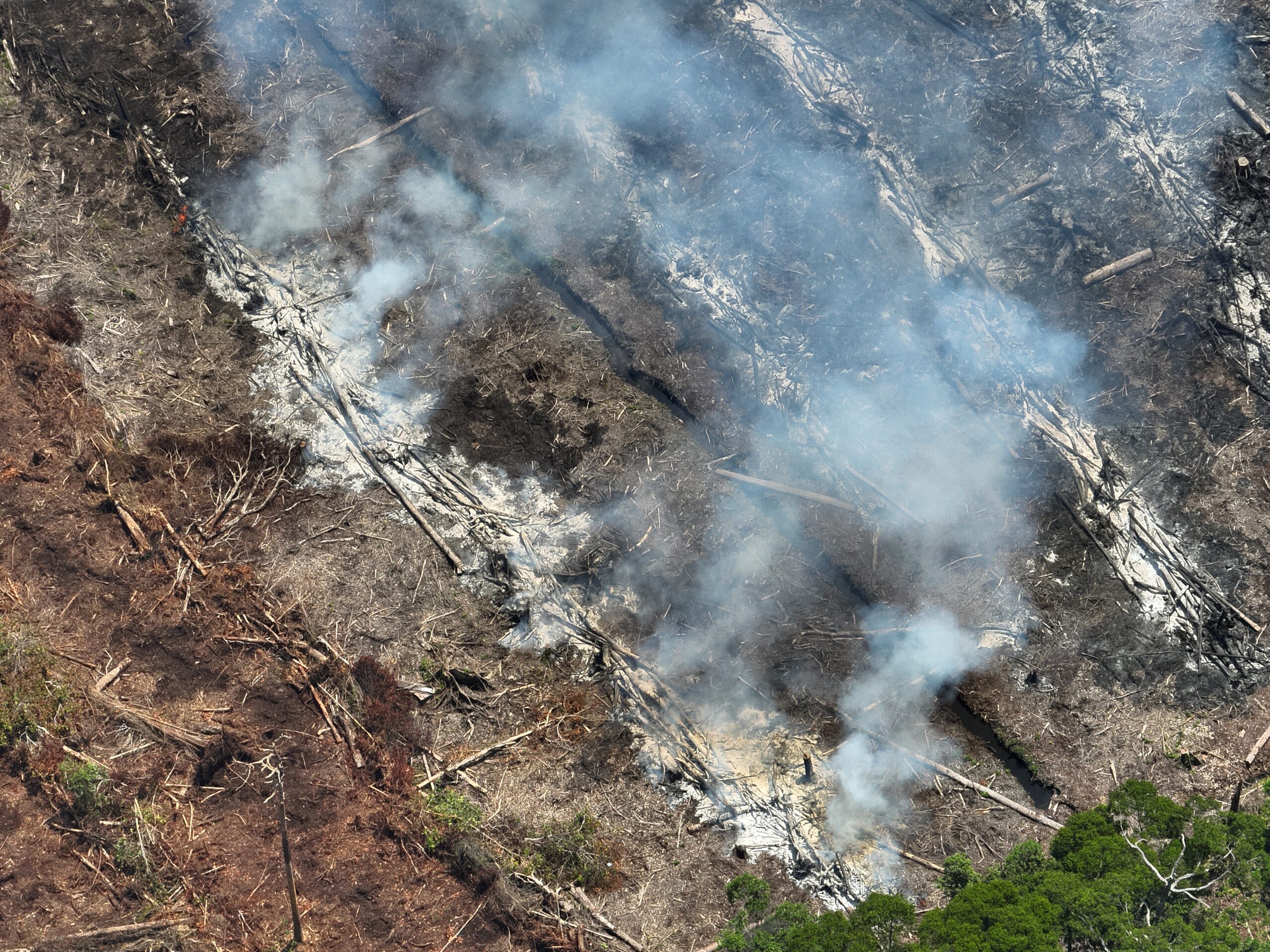
Fires burn following illegal deforestation within and surrounding the Rawa Singkil Wildlife Reserve, Aceh Selatan. February 2024. GPS Coordinates: 02°45′ 0.3″N 97°39′ 1.818″E.
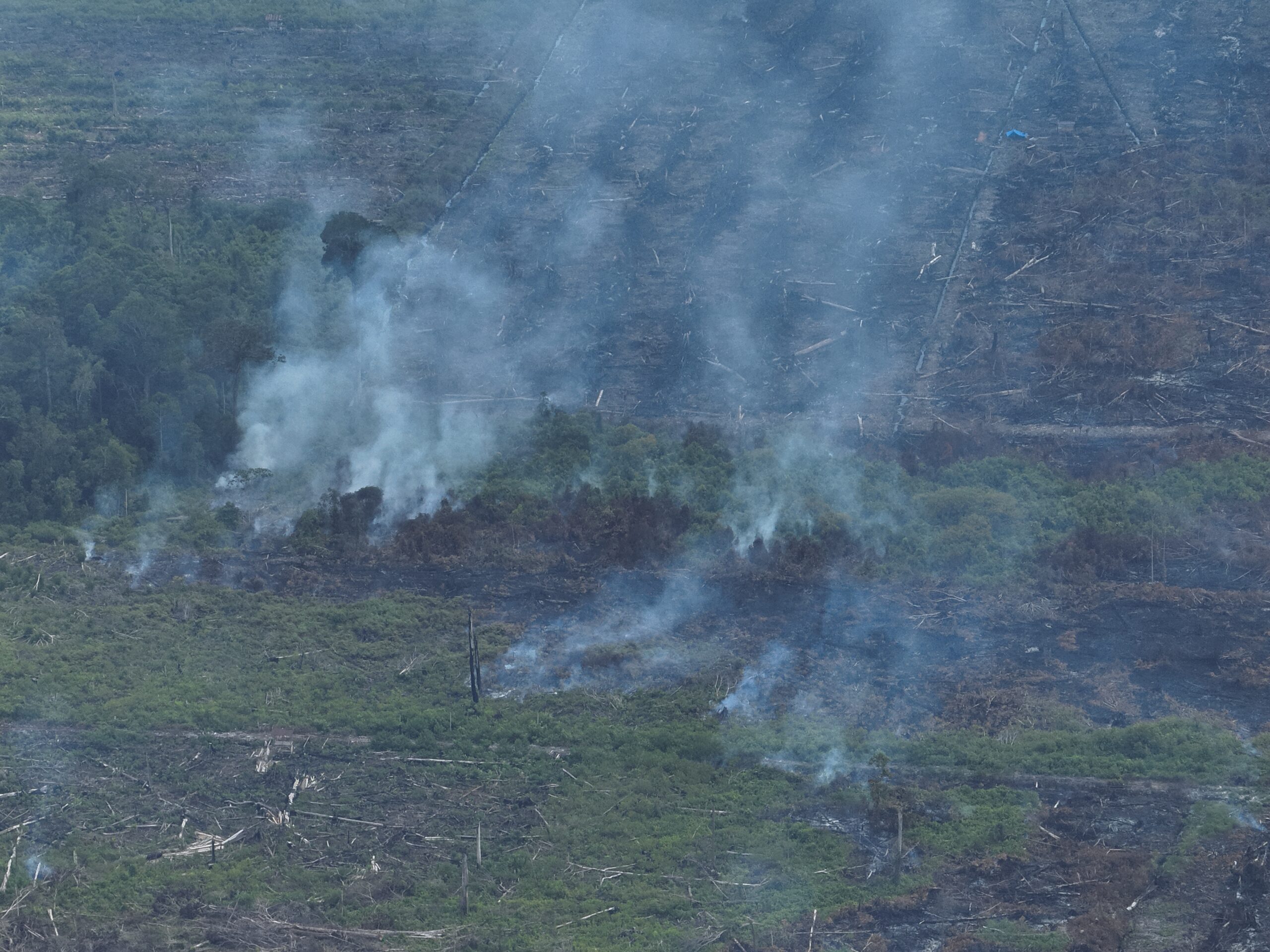
Fires burn peatlands within the Rawa Singkil Wildlife Reserve, Aceh Selatan. February 2024. GPS Coordinates: 02°44′ 46.002″N 97°39′ 11.46″E.

Deforestation within the Rawa Singkil Wildlife Reserve, Aceh Selatan. October 2023. Credit: Paul Hilton/Global Conservation

New illegal drainage of peatlands inside and surrounding the Rawa Singkil Wildlife Reserve, Aceh Selatan. February 2024. October 2023. Credit: Paul Hilton/Global Conservation.

New illegal drainage of peatlands inside the Rawa Singkil Wildlife Reserve, Aceh Selatan. October 2023. Credit: Paul Hilton/Global Conservation.

Peat forest destruction inside the Rawa Singkil Wildlife Reserve, Aceh Selatan. October 2023. Credit: Paul Hilton/Global Conservation.
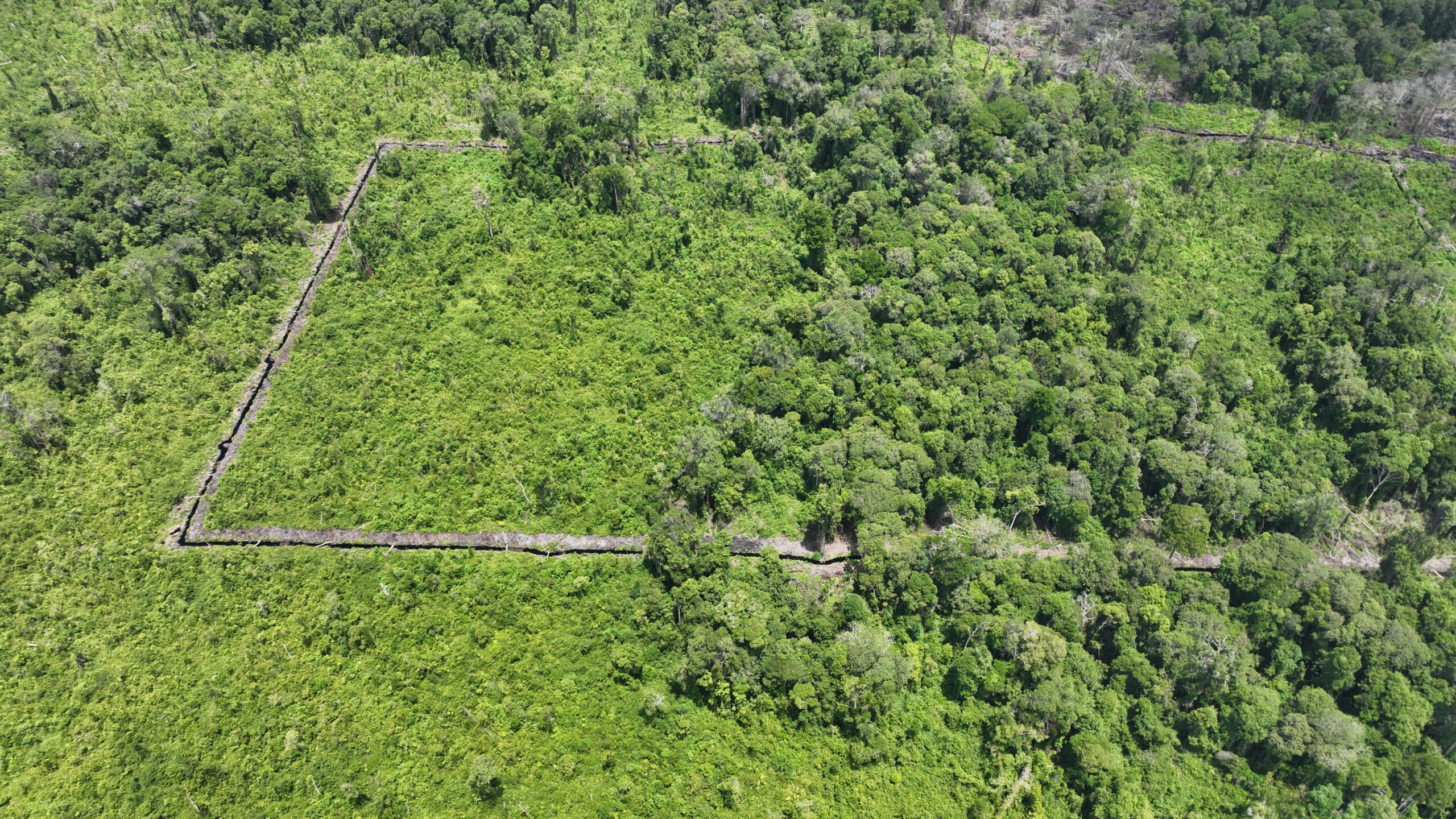
New canal development inside the Rawa Singkil Wildlife Reserve, Aceh Selatan, Indonesia. August, 2023.
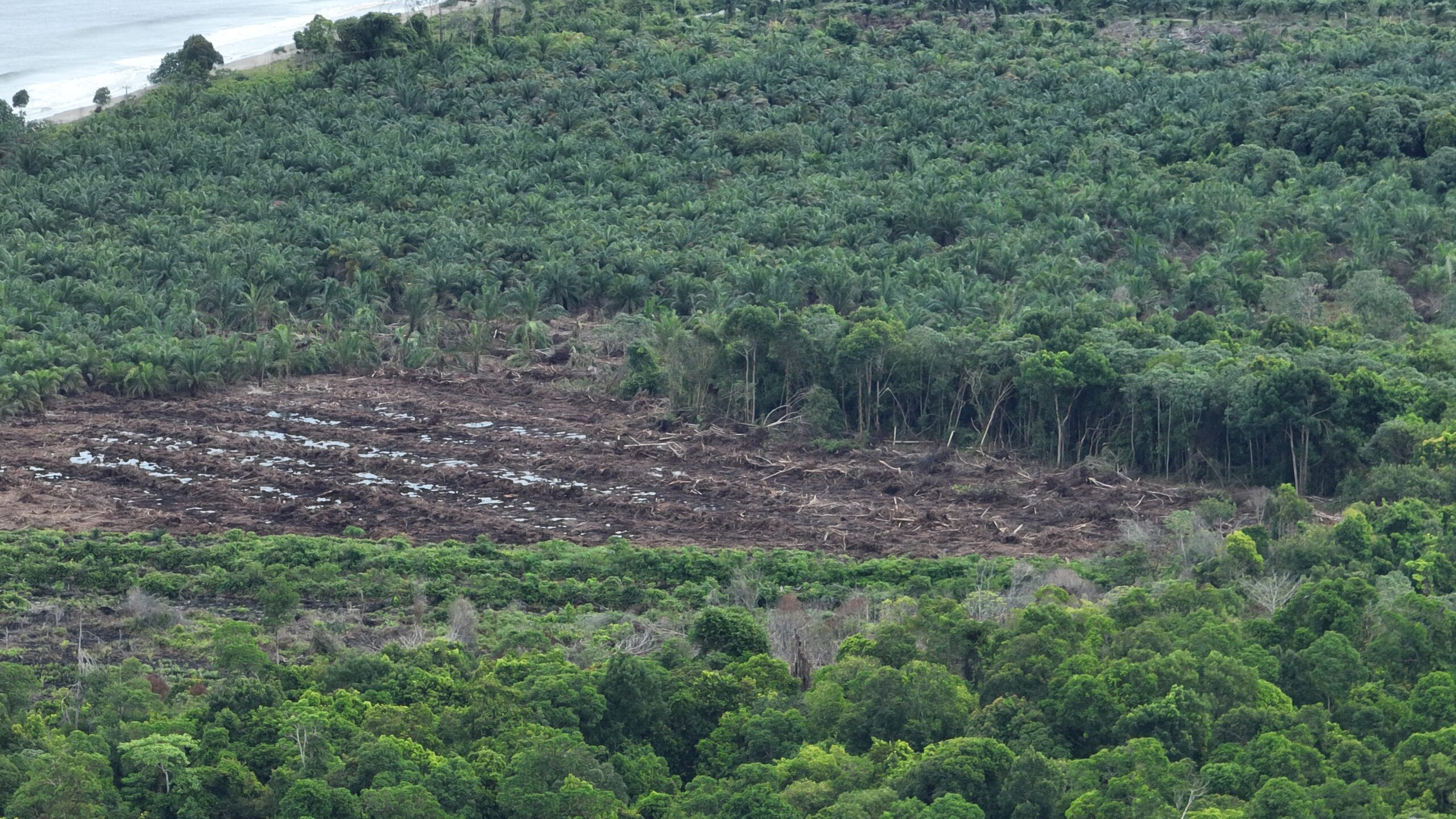
New forest clearance for oil palm plantations between the coast and the boundary of the Rawa Singkil Wildlife Reserve, Aceh Selatan, Indonesia. August, 2023.
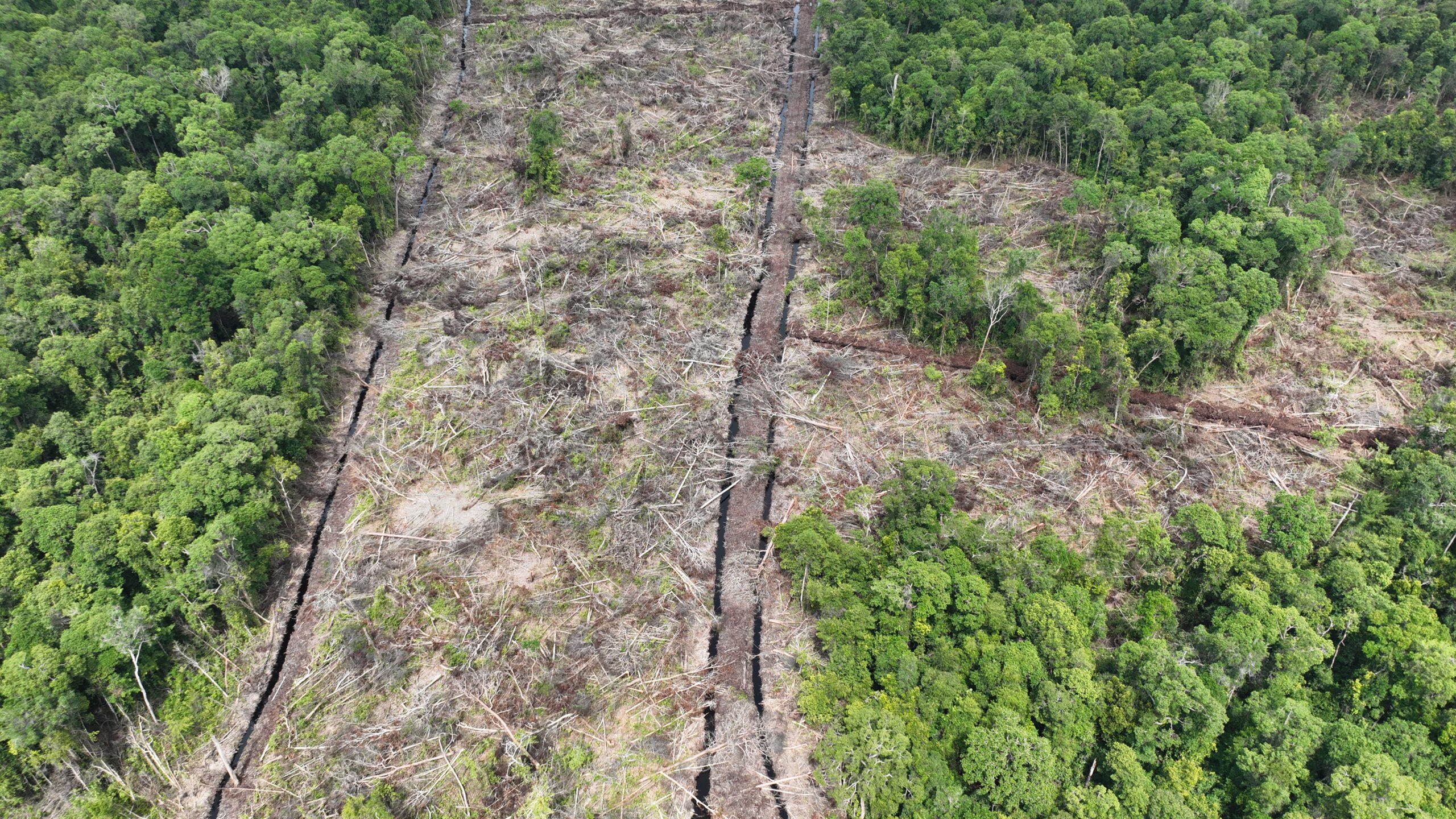
New forest clearance and canal development inside the Rawa Singkil Wildlife Reserve, Aceh Selatan, Indonesia. August, 2023.
This uptick in deforestation is especially disturbing because, even as overall deforestation has declined across Indonesia as a whole, we are seeing a countertrend of steady, year over year escalation of illegal primary forest destruction inside one of the most climate critical and globally important habitat areas for endangered wildlife species left in Indonesia. The Leuser Ecosystem’s Rawa Singkil Wildlife Reserve, known as the Orangutan Capital of the World, is one the most highly protected national forest areas in the country, and yet in 2019 we documented nearly 70 acres of forest clearance, which increased in 2020 to 106 acres, increasing again in 2021 to 408 acres, again growing in 2022 to nearly 1,770 acres and growing to a shocking 4,398 acres in 2023.
Already, in the first 6 months of 2024, we have exposed the construction of new mills that will drive further expansion of palm oil into the Orangutan Capital of the World. This builds on worrying trends we documented over the past year, when we exposed new deforestation hotspots along the eastern border of the reserve and new drainage canals being illegally dug into carbon-rich peat swamp areas of the reserve.
With global brands and the Consumer Goods Forum (CGF) having now made public commitments to end exactly this kind of destruction for palm oil development, this death by a thousand cuts is extremely worrisome and demands an immediate response. Procter & Gamble must follow through on its commitment to support restoration of illegal palm oil plantations within the Rawa Singkil Wildlife Reserve. Brands in the CGF must enforce their No Deforestation, No Peatland and No Exploitation policies with suppliers, close the loopholes in traceability systems that are allowing illegally produced palm oil to be smuggled into their supply chains, and invest in collaborative programs designed to protect and restore the Leuser Ecosystem’s rainforests and peatlands, especially those facing an onslaught within the Rawa Singkil Wildlife Reserve in the district of Aceh Selatan, Indonesia.
Join us as we call on P&G to uphold its commitment to restore peat forests in the orangutan capital of the world.
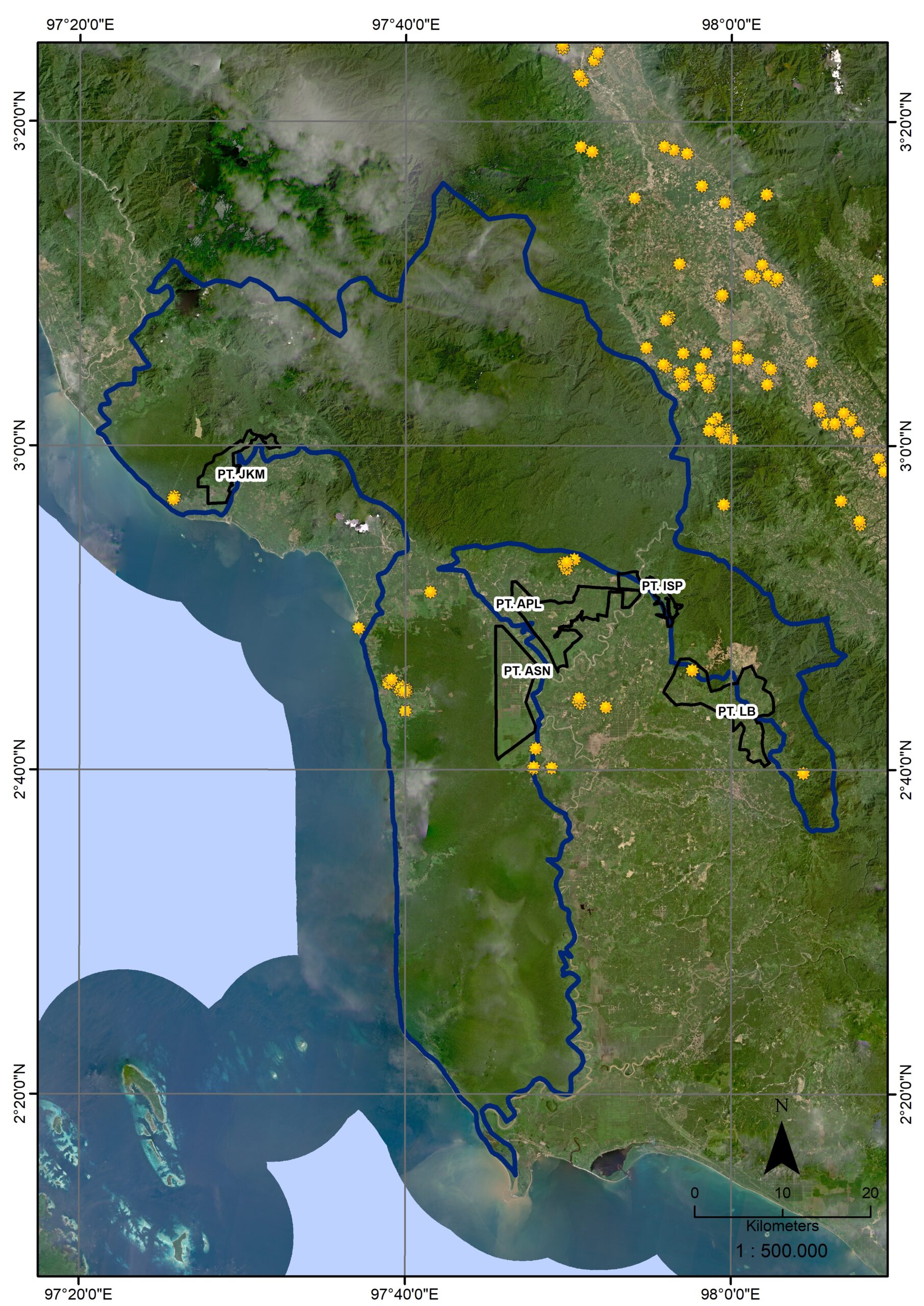
Map showing remaining forests within the Singkil-Bengkung Trumon region where the Rawa Singkil Wildlife Reserve is located. The Singkil-Bengkung Trumon region is a priority region within the globally important Leuser Ecosystem that is threatened by palm oil expansion. Planet satellite imagery. The yellow stars show fires within the region in January 2024.
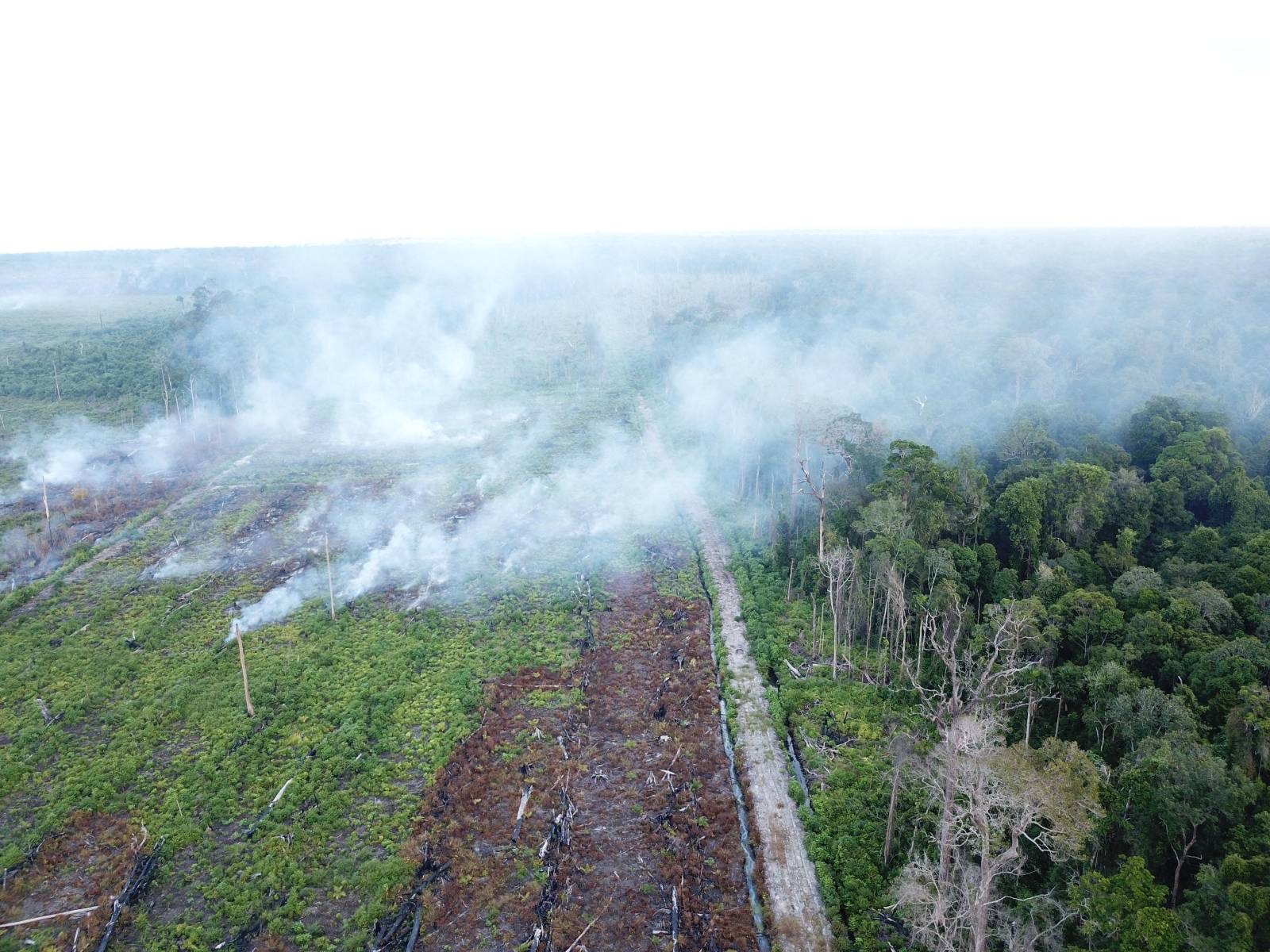
Peat forests that are the orangutan capital of the world remain at risk of illegal palm oil expansion within the Rawa Singkil Wildlife Reserve












